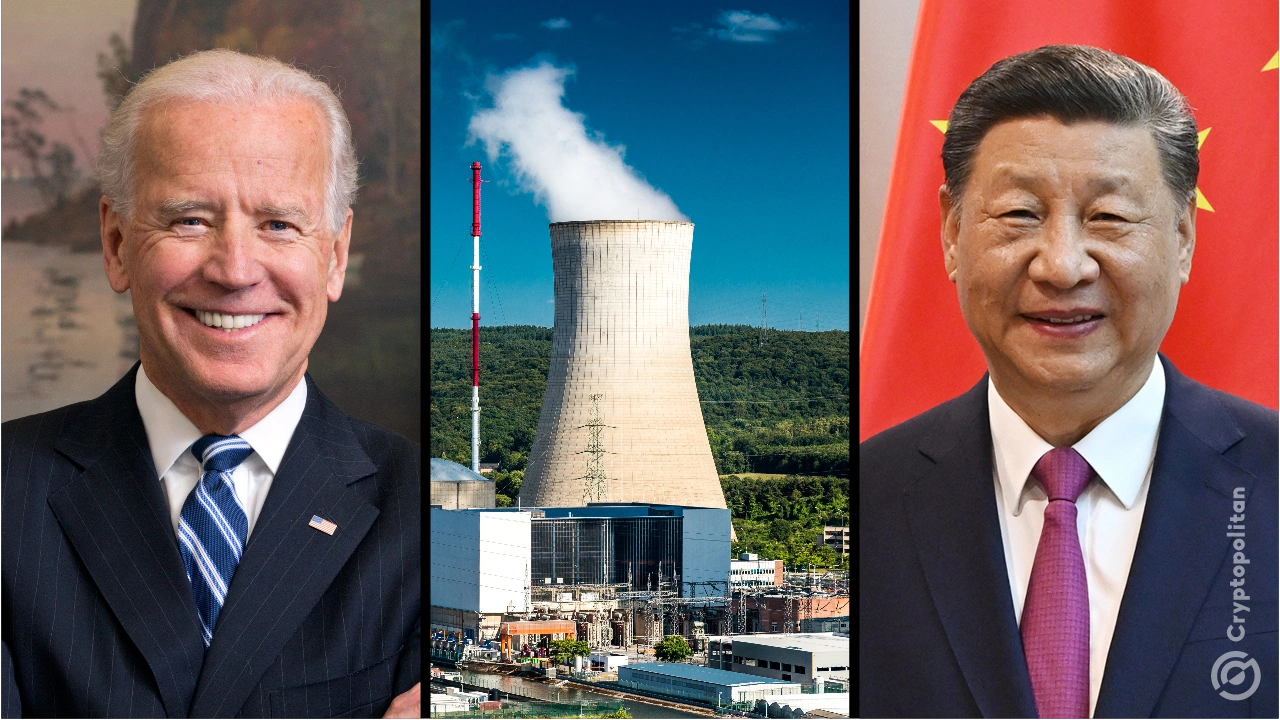The United States and China have reached an agreement: artificial intelligence will not decide the fate of nuclear weapons.
This pact, announced after a meeting between President Joe Biden and President Xi Jinping at the APEC summit in Lima, Peru, comes as both nations acknowledge their responsibilities as global leaders in AI development.
It’s not because either country was on the verge of handing nukes over to a machine. It’s about setting boundaries before things even start to spiral out of control.
Jake Sullivan, Biden’s national security advisor, explained the move in simple terms: humans must remain in control of decisions involving nuclear weapons. “It’s an important statement about AI and nuclear doctrine,” he said.
The meeting is expected to be the last between Biden and Xi during Biden’s presidency. But even as they shook hands and made this rare agreement, the tension between the two countries was thick in the air.
Tech wars and trade fights with China
Let’s not pretend everything’s rosy between the U.S. and China. They’ve been locked in heated disputes over technology and trade for generations.
America has slapped export controls on advanced semiconductors that are essential for AI development. These restrictions are seen as an effort to stall China’s tech growth.
In his remarks, Xi warned that the relationship between the U.S. and China isn’t just about the two nations. It’s about the fate of the world. “Make the wise choice,” he said, urging both sides to figure out how to coexist without blowing things up—literally or figuratively.
But his subtle diss wasn’t just at Biden. Xi has his eyes on President Donald Trump too. Trump’s campaign talk about slapping massive, aggressive tariffs on Chinese goods has Beijing on edge. Xi, speaking through an interpreter, said China is ready to work with the incoming administration. “Expand cooperation. Manage differences,” he urged.
For the record, Trump promised tariffs as high as 60% on Chinese imports during his campaign. American companies are already bracing for impact. Brands like Steve Madden are cutting imports from China by nearly half next year. Others, like Nike, are moving sourcing away from China entirely.
Spy balloons, cyberattacks, and global spying games
If the last few years have proven anything, it’s that trust between the U.S. and China is at an all-time low. Just last year, Biden had a Chinese spy balloon shot down after it floated across U.S. airspace. And it’s not just balloons.
The FBI recently revealed details about a Chinese cyberespionage campaign targeting American telecommunications networks. The goal? Stealing information from U.S. government officials and politicians. Subtle, right?
It doesn’t stop there. U.S. intelligence accused China of helping Russia build weapons for its war in Ukraine. This includes selling machine tools and microelectronics that end up in Russian missiles and tanks. China, of course, denies this. But actions speak louder than words.
In Lima, Biden pushed Xi to stop North Korea from aiding Russia. Kim Jong Un has reportedly sent thousands of troops to help Moscow hold off Ukrainian forces. North Korea has also been firing off ballistic missiles and flexing its muscles in the region. Biden called this “dangerous and destabilizing,” but Beijing hasn’t exactly stepped up to rein Pyongyang in.
China holds the purse strings when it comes to North Korea’s economy, controlling most of its trade. U.S. officials are frustrated that Xi hasn’t done more to keep Kim in check. And the clock’s ticking. North Korea is ramping up its missile program and claiming it can hit the U.S. mainland. Not exactly comforting.
The Biden-Xi dynamic
Biden and Xi go way back. They first met as vice presidents over a decade ago. Biden likes to say their relationship has always been candid. No sugar-coating. No pretending to get along when they don’t. But the last four years have tested even that.
The trade wars, spy scandals, escalating tensions over Taiwan — all of it has pushed the relationship to its limits. Biden reflected on their history during the meeting, saying, “We’ve spent a long time dealing with these issues.”
He’s not wrong. They’ve been at this for years. Biden also knows the stakes are higher than ever. But the APEC summit in Lima was also about optics. Biden and Xi were photographed wearing scarves made from vicuña wool, a nod to Peru’s cultural heritage.
Meanwhile, Taiwan remains a major sticking point. China claims it as its own territory, but the U.S. continues to support Taiwan’s self-rule. Beijing sees this as a red line. Washington sees it as non-negotiable. Neither side is budging, and that’s a problem.
So all in all, this agreement to keep AI out of nuclear decisions is a rare moment of alignment between two rivals. But it’s a drop in the ocean compared to the challenges ahead. For now, humans are still in control of the nukes. Let’s hope it stays that way.
This articles is written by : Fady Askharoun Samy Askharoun
All Rights Reserved to Amznusa www.amznusa.com
Why Amznusa?
AMZNUSA is a dynamic website that focuses on three primary categories: Technology, e-commerce and cryptocurrency news. It provides users with the latest updates and insights into online retail trends and the rapidly evolving world of digital currencies, helping visitors stay informed about both markets.
